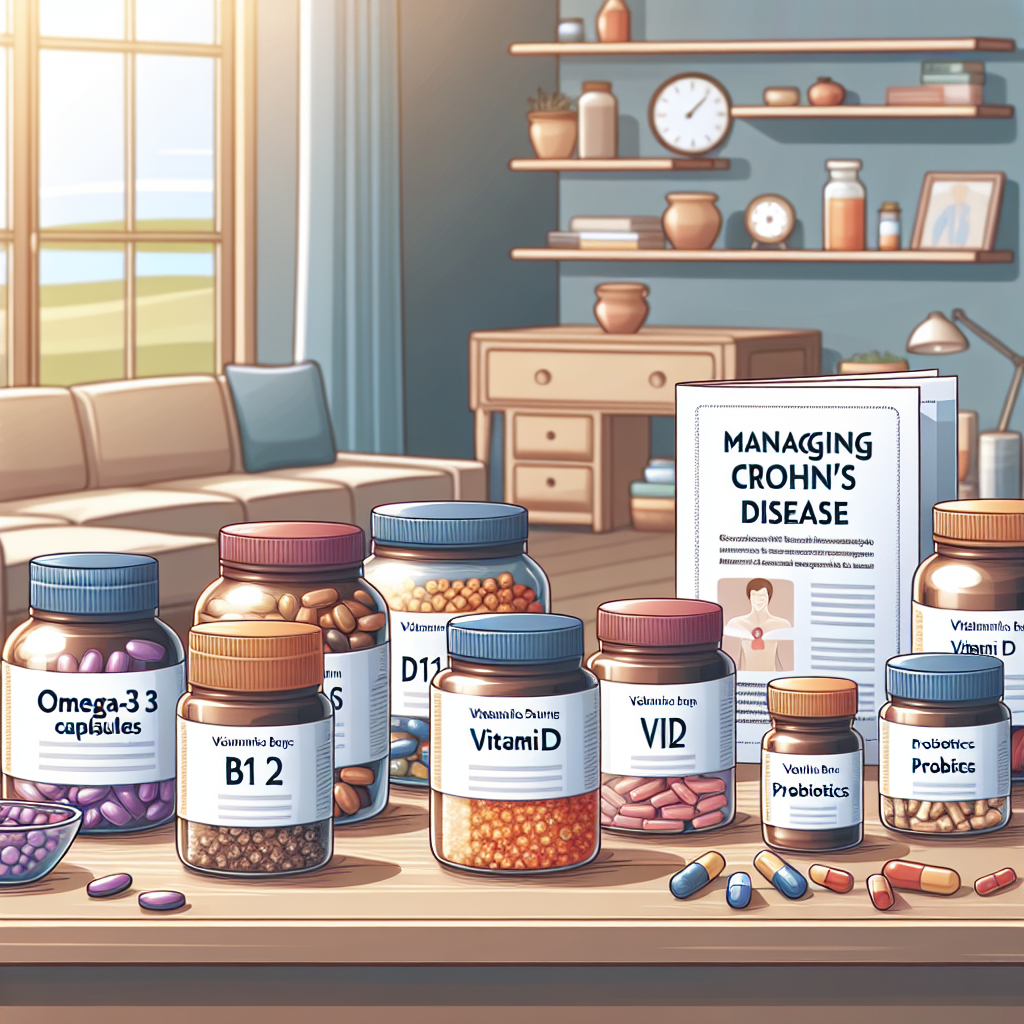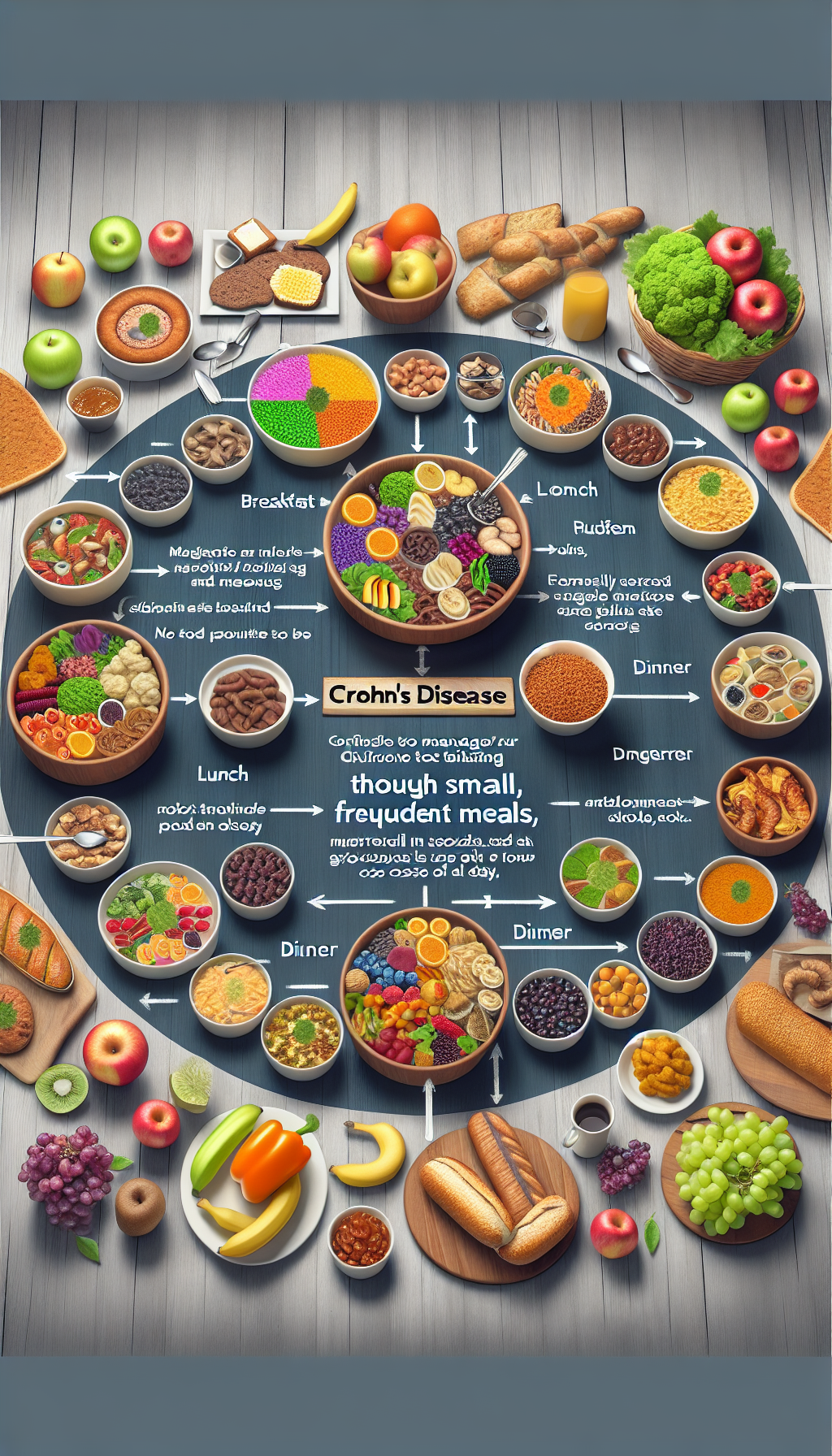Crohn’s disease is a type of inflammatory bowel disease (IBD) that can cause debilitating symptoms and complications. While there is no cure for Crohn’s disease, diet and nutrition play a crucial role in managing its symptoms and can help reduce the frequency of flare-ups. This article will explore the dietary strategies that individuals with Crohn’s disease can adopt to maintain digestive health and overall wellbeing.
The Impact of Nutrition on Crohn’s Disease
Nutrition is a cornerstone of managing Crohn’s disease. The food you eat directly affects the health of your gastrointestinal tract. For those with Crohn’s, certain foods can exacerbate symptoms like abdominal pain, diarrhea, and fatigue. It’s vital to identify foods that trigger symptoms and to understand how to nourish the body effectively while minimizing discomfort.
Identifying Trigger Foods
One of the first steps in dietary management is identifying and eliminating trigger foods. Common culprits include high-fiber foods, dairy products, spicy foods, alcohol, and caffeine. Keeping a food diary can be extremely helpful in tracking which foods worsen symptoms.
Nutritional Needs During Flare-Ups
During flare-ups, the body’s nutritional needs change. It’s essential to focus on foods that are easy to digest and to stay hydrated. Low-fiber foods, like white bread or rice, and clear liquids can help during these times. To support the points made about the importance of hydration, particularly during flare-ups, The Mayo Clinic offers invaluable guidelines that emphasize the significance of fluid intake for individuals suffering from Crohn’s disease.
The Role of Supplements
Since Crohn’s disease can affect the body’s ability to absorb nutrients, supplements may be necessary. Iron, vitamin D, calcium, and B vitamins are commonly needed. It’s imperative to consult a healthcare provider before starting any supplements, as they can interact with medications or exacerbate symptoms. The Crohn’s & Colitis Foundation provides an in-depth look at the role of supplements in managing IBD, which can further guide individuals on their journey to better health.
Specific Dietary Plans for Crohn’s Disease
Several diet plans have been researched and can be beneficial for managing Crohn’s disease. It’s essential to work with a healthcare professional to determine which diet fits best for an individual’s condition.
The Specific Carbohydrate Diet (SCD)
The SCD is designed to reduce inflammation in the digestive system by eliminating complex carbohydrates that are difficult to digest. It focuses on natural, unprocessed foods and excludes grains, lactose, and sugars, except for honey. For more information, visit Breaking the Vicious Cycle, which provides detailed guidance on the SCD.
Low-Residue Diet
A low-residue diet aims to reduce the frequency and volume of stools by limiting fiber intake. It often includes foods like white bread, white rice, and well-cooked vegetables. For a comprehensive account of a low-residue diet, The University of Pittsburgh Medical Center has a resource that outlines the specifics of this dietary approach.
Anti-Inflammatory Diet
An anti-inflammatory diet includes foods that are rich in antioxidants, omega-3 fatty acids, and phytochemicals, which may help reduce inflammation. It often emphasizes fruits, vegetables, lean proteins, and healthy fats. For those interested in the science behind the anti-inflammatory diet, The Arthritis Foundation discusses the benefits and provides food choices that may help combat inflammation.
Practical Tips for Everyday Eating
Living with Crohn’s disease doesn’t mean you have to give up enjoying food. Here are some practical tips for everyday eating:
- Eat Small, Frequent Meals: Instead of three large meals, try eating smaller amounts more frequently to ease digestion.
- Cook Vegetables: Cooking vegetables helps break down fiber, making them gentler on your digestive system.
- Focus on Omega-3s: Foods like salmon and walnuts, which are high in omega-3 fatty acids, can be beneficial. This study highlights the potential of omega-3 fatty acids in reducing inflammation in IBD patients.
- Consider Probiotics: Probiotics may help maintain a healthy balance of bacteria in the gut. For insights into the benefits of probiotics for Crohn’s disease, check out this research.
Beyond Diet: Integrating Comprehensive Management
Managing Crohn’s disease requires a multifaceted approach. In addition to dietary changes, it’s important to integrate other aspects of health management.
- Exercise Regularly: Physical activity can reduce stress, which is a known trigger for Crohn’s flare-ups. For further reading on the role of exercise, visit this article on the link between exercise and digestive health.
- Stress Reduction: Techniques such as yoga, meditation, or cognitive-behavioral therapy can help manage stress. For more information on stress and digestion, this resource can be particularly enlightening.
- Regular Check-Ups: Regular visits with your healthcare provider are essential to monitor your condition and adjust treatments as necessary.
- Support Networks: Joining a support group can provide emotional support and practical advice from others living with the disease. This discussion on the benefits of digestive health support groups may provide valuable insights.
Conclusion
Diet plays a vital role in managing Crohn’s disease, but it’s important to remember that there is no one-size-fits-all solution. A combination of dietary management, lifestyle adjustments, and medical treatments tailored to individual needs can help those with Crohn’s lead fulfilling lives. By understanding the impact of nutrition and integrating a comprehensive management plan, individuals with Crohn’s disease can take proactive steps towards maintaining their health and improving their quality of life.



